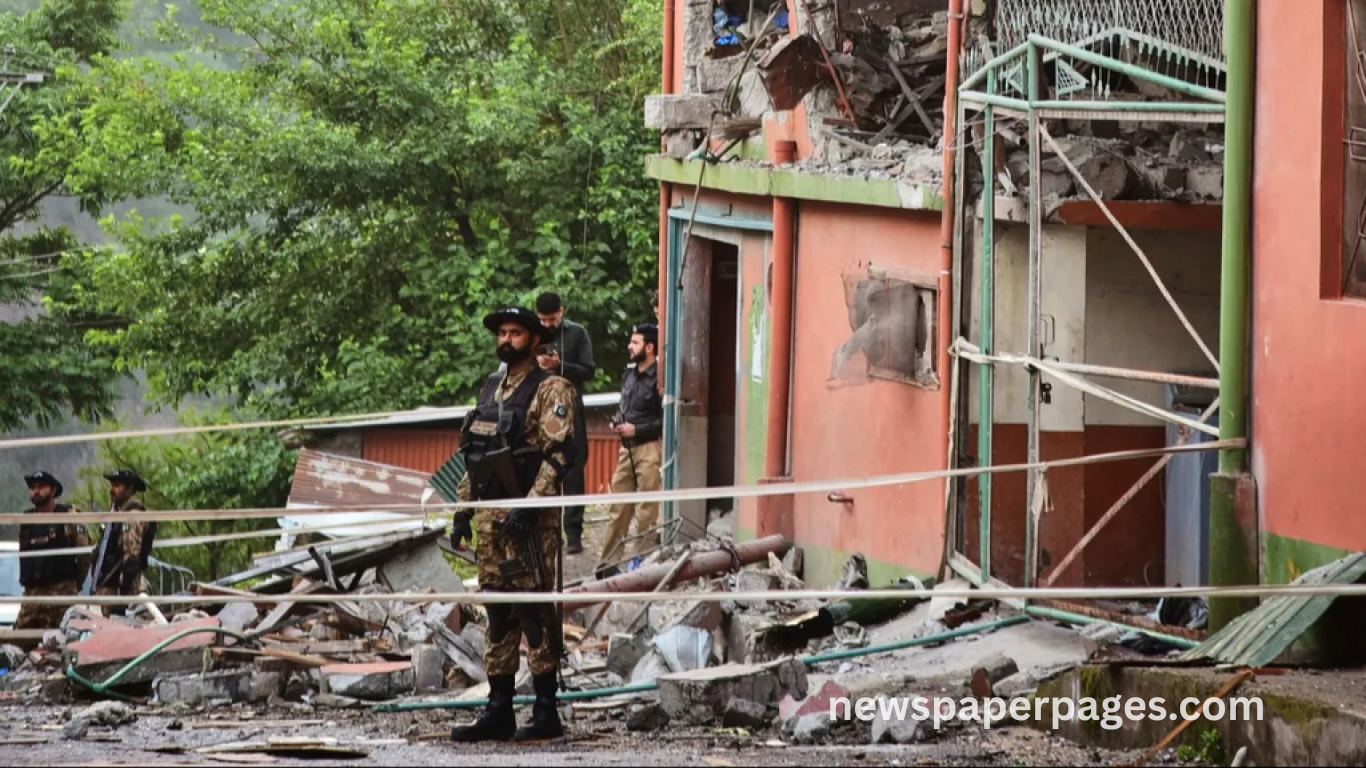Tensions between India and Pakistan escalated dramatically following a brutal massacre in the Kashmir Valley, leading to a swift and decisive military response from India. The cross-border strike marks a profound turning point in the decades-long conflict over the contested region, stirring international attention and raising fears of broader conflict. As the world watches, both governments are under pressure to explain their actions, calm public outrage, and manage the fallout from the deadly events.
The Kashmir region, often described as the most militarized zone on Earth, has long been a flashpoint between the two nuclear-armed neighbors. The latest attack, which resulted in the deaths of dozens of civilians and security forces, has triggered widespread condemnation and demands for justice. India’s response has been decisive and controversial, sparking debates about sovereignty, counterterrorism, and regional stability.
India’s Response to the Kashmir Massacre
India launched a precision airstrike on suspected terrorist camps across the Line of Control (LoC), targeting infrastructure believed to be linked to the perpetrators of the Kashmir massacre. This marked a significant departure from previous diplomatic or covert responses and aimed to send a clear message about India’s intolerance for cross-border terrorism.
Details of the Kashmir Massacre
The massacre occurred in a densely populated area of Kashmir, where armed militants targeted civilians and local security forces in a coordinated attack. Eyewitness accounts describe scenes of chaos and bloodshed, with over 40 people killed and many more injured. The attack has been linked to a Pakistan-based militant group, though Islamabad has denied involvement.
Global Reaction and Diplomatic Fallout
The international community responded with a mix of support, concern, and calls for restraint. Countries like the United States, France, and the United Kingdom expressed solidarity with India while urging both sides to avoid further escalation. The United Nations has called for an impartial investigation and renewed efforts toward peaceful resolution.
Pakistan’s Denial and Counterclaims
Pakistan vehemently denied any involvement in the Kashmir massacre and condemned India’s retaliatory strikes as unprovoked aggression. Officials in Islamabad have claimed that the Indian airstrikes targeted uninhabited areas and caused no real damage, portraying the action as a political move ahead of domestic elections in India.
Read More : Republicans Aimed to Expand Their Senate Majority, But the Map Is Growing More Challenging.
Impact on Indo-Pak Relations and Regional Security
The strikes have further strained an already fragile relationship between India and Pakistan, with both sides putting their militaries on high alert. Regional security analysts warn that the situation could spiral into a broader conflict if not carefully managed. This escalation may also impact economic cooperation, diplomatic ties, and civil society exchanges across the region.
India’s Domestic Response and Political Ramifications
The public and political parties have widely supported the Indian government’s firm response, although critics argue electoral considerations may have influenced it. The ruling party has used the strike to demonstrate its commitment to national security, but opposition leaders have called for transparency and accountability.
Media Coverage and Public Sentiment
Media outlets across both countries have covered the events extensively, with differing narratives shaping public perception. Indian media largely praised the military action as necessary, while Pakistani outlets emphasized the need for dialogue and de-escalation. Social media has amplified both outrage and misinformation, fueling nationalistic fervor on both sides.
Historical Context of Indo-Pak Conflict over Kashmir
The conflict over Kashmir dates back to the partition of British India in 1947, with both nations claiming the territory in full but controlling different parts. Multiple wars and skirmishes have occurred over the region, and numerous peace talks have failed to yield lasting solutions. The recent events are a reminder of how fragile the situation remains.
Potential for International Mediation and Peace Talks
There are growing calls for third-party mediation, with countries like China and Russia urging restraint and offering to facilitate dialogue. However, both India and Pakistan have historically resisted external involvement in bilateral matters. Still, many believe that renewed peace talks are essential to prevent another deadly confrontation.
Frequently Asked Questions
What triggered India’s strike on Pakistan?
India launched the strike in retaliation for a deadly massacre in Kashmir that was reportedly carried out by militants linked to a Pakistan-based group.
Was the Indian strike a violation of international law?
The legality is contested. India claims self-defense under international norms, while Pakistan and some experts call it a violation of sovereignty.
How did Pakistan respond to the Indian airstrike?
Pakistan denied involvement in the massacre and downplayed the impact of the airstrikes, labeling them as unjustified aggression.
Could this conflict escalate into a full-scale war?
While tensions are high, both nations have so far avoided full-scale war, likely due to the catastrophic implications of a conflict between nuclear powers.
What role is the international community playing?
Countries and organizations are urging de-escalation, offering mediation, and emphasizing the need for dialogue to resolve the crisis peacefully.
Is there any proof linking Pakistan to the Kashmir attack?
India has presented intelligence it claims links the attackers to Pakistan-based groups, but international verification remains pending.
How are Indian citizens reacting to the government’s actions?
Many Indians have supported the government’s tough stance, viewing it as a justified response to terrorism and a show of national strength.
What’s the impact on everyday life in Kashmir?
The region remains tense, with heightened security, restricted movement, and ongoing fear among civilians of further violence.
Conclusion
India’s strike against Pakistan following the Kashmir massacre has intensified an already volatile situation. While many view it as a necessary response, others worry about the risk of broader conflict. Global diplomacy must now prioritize peace, dialogue, and accountability to avoid future tragedies and foster long-term regional stability.

